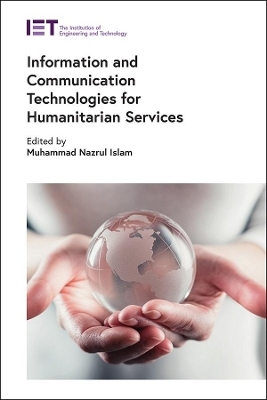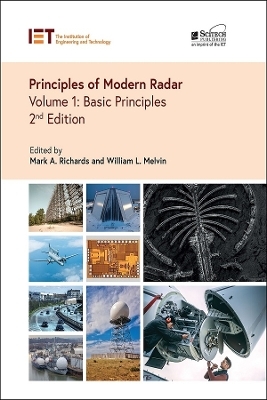
Information and Communication Technologies for Humanitarian Services
Institution of Engineering and Technology (Verlag)
978-1-78561-996-0 (ISBN)
Humanitarian services seek to promote welfare to save lives, maintain human dignity, alleviate suffering, strengthen preparedness, and provide material and logistical assistance in response to humanitarian crises. They are thus different from development aids that address underlying socioeconomic factors and provides support for the social, economic and political developments of developing nations. Information and Communication Technologies (ICTs) are becoming the backbone technologies for providing quality and efficient services and are playing an increasingly important and sophisticated role in humanitarian-service activities. Many ICT-based solutions exist such as tools to support the work of humanitarian organizations, mobile applications and solutions to provide health services, open source web portals for disaster management systems, and mobile and autonomous devices to provide assistance.
This edited book covers new developments, innovations, and research outcomes for the creation and deployment of effective ICT technologies and solutions to support humanitarian services. Coverage includes theories as well as information, mobile and networking applications that foster information exchange and cooperation in the humanitarian and emergency management fields.
Aimed at ICTs and computer engineers, professionals, and researchers working on practical and lasting ICT solutions to support humanitarian services, this will also be a useful reference for advanced students and lecturers in the field, entrepreneurs and researchers from government, non-government and industry organizations, as well as professional in NGO organizations, ethics committees, and policymakers.
Muhammad Nazrul Islam is an associate professor at the Department of Computer Science and Engineering at the Military Institute of Science and Technology (MIST), Dhaka, Bangladesh. His research interests are focused on human-computer interaction, humanitarian technology, health informatics, military information systems, information systems usability, and computer semiotics. He is a member of the IEEE and the IEB (Engineering Institute of Bangladesh).
Chapter 1: Introduction
Chapter 2: Where are the women? How to design information and communications technology to be inclusive of women and girls in humanitarian settings
Chapter 3: Profound technologies: towards exploring the technological disruption and the challenges for a more humanized and inclusive education
Chapter 4: New frontiers of human wisdom: information, communication and consciousness empowered decision-making under the broader realm of reality
Chapter 5: A sustainable knowledge framework for technological advancements in humanitarian assistance
Chapter 6: ICT for early assessing the disaster amplitude, for relief planning, and for resilience improvement
Chapter 7: Use cases of blockchain technology for humanitarian engineering
Chapter 8: Big data-driven disaster resilience
Chapter 9: Design and development of a rapid damage assessment for Albay elementary schools in the Philippines
Chapter 10: Technologies for emergency rollout of broadband public protection and disaster relief (BB-PPDR) communications in humanitarian crisis zones
Chapter 11: Connecting the disconnected: a combination of DTN, CDN, TCP/IP, and OpenFlow approach
Chapter 12: A framework for developing a smart and adaptive environment for aging population
Chapter 13: Design, implementation, and evaluation of a mobile game for blind people: toward making mobile fun accessible to everyone
Chapter 14: Challenges and opportunities of adopting ICTs in the humanitarian sector in Nigeria
Chapter 15: Deciphering adoption and adaption of ICTs in humanitarian services: the southern African context
Chapter 16: Conclusions
| Erscheinungsdatum | 12.10.2020 |
|---|---|
| Reihe/Serie | Telecommunications |
| Verlagsort | Stevenage |
| Sprache | englisch |
| Maße | 156 x 234 mm |
| Themenwelt | Technik ► Nachrichtentechnik |
| ISBN-10 | 1-78561-996-9 / 1785619969 |
| ISBN-13 | 978-1-78561-996-0 / 9781785619960 |
| Zustand | Neuware |
| Haben Sie eine Frage zum Produkt? |
aus dem Bereich


